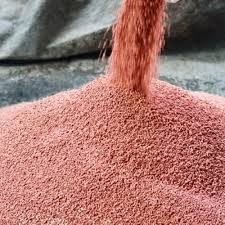
ม.ค. . 01, 2025 14:25 Back to list
Leading NPK Fertilizer Manufacturers and Their Innovative Production Techniques
The Role of NPK Fertilizer Manufacturers in Modern Agriculture
In today’s rapidly evolving agricultural landscape, the significance of fertilizers cannot be overstated. Among the various types of fertilizers, NPK (Nitrogen, Phosphorus, and Potassium) fertilizers play a crucial role in enhancing crop productivity and ensuring food security. The manufacture of these fertilizers is a sophisticated process that requires expertise, innovation, and a firm understanding of agronomy. NPK fertilizer manufacturers are at the forefront of this mission, providing essential nutrients that empower farmers globally.
Understanding NPK Fertilizers
NPK fertilizers are formulated with three primary nutrients nitrogen (N), phosphorus (P), and potassium (K), which are vital for plant growth. Each of these nutrients serves a specific purpose
- Nitrogen (N) encourages leafy, vegetative growth, making it critical for crops that require robust foliage. - Phosphorus (P) is essential for root development, flowering, and fruiting, thereby playing a pivotal role in the reproductive stages of plants. - Potassium (K) helps in water regulation, enhances disease resistance, and improves the overall quality of the crops.
The percentage of each nutrient in an NPK fertilizer is indicated on the packaging, typically in a three-number format (e.g., 10-20-10), where the numbers represent the percentage of nitrogen, phosphorus, and potassium, respectively. This formulation allows farmers to choose an NPK blend that best suits their specific crop needs and soil conditions.
The Manufacturing Process
The production of NPK fertilizers is a complex process that involves several stages
1. Raw Material Sourcing Key material sources include ammonia for nitrogen, phosphate rock for phosphorus, and potassium salts for potassium. These raw ingredients are sourced from various suppliers, often involving international trade.
2. Chemical Reactions Manufacturers blend these materials through controlled chemical reactions to create complex compounds. For example, ammonium phosphate is produced by reacting ammonia with phosphoric acid, while potash provides the necessary potassium.
3. Granulation and Blending The resulting compounds are then granulated to ensure uniform particle size, which is crucial for even distribution during application. Different NPK ratios can be created by blending various granules in precise proportions.
npk fertilizer manufacturers manufacturer

4. Quality Control The final product undergoes rigorous quality control tests to ensure it meets industry standards and contains the stated nutrient content. This process includes testing for physical characteristics as well as chemical composition.
5. Packaging and Distribution Once certified, the fertilizers are packaged in bags or bulk containers for distribution. Efficient logistics are fundamental to reaching farmers in a timely manner, especially during planting seasons.
The Impact on Agriculture
NPK fertilizer manufacturers play a pivotal role in ensuring that farmers have access to high-quality fertilizers. The availability of tailored NPK fertilizers means that farmers can optimize their crop yields while potentially reducing the environmental impact of over-fertilization. Additionally, these fertilizers support sustainable farming practices by enabling precise nutrient management.
Moreover, as global demands for food rise, NPK fertilizers help increase agricultural productivity, combat hunger, and improve the livelihoods of farmers. By investing in research and development, many manufacturers are also exploring eco-friendly alternatives and enhanced efficiency fertilizers (EEFs) that offer prolonged nutrient release, minimizing the risk of nutrient runoff and pollution.
Future Trends
The future of NPK fertilizer manufacturing is likely to be characterized by innovation and sustainability. With advances in technology, manufacturers are beginning to utilize precision agriculture practices. These techniques allow for better soil testing and monitoring, helping to create more personalized fertilizer solutions that cater to specific field conditions.
Additionally, the increasing emphasis on environmental sustainability is prompting manufacturers to develop biodegradable and organic options. Such movements not only help farmers maintain soil health but also align with the growing consumer demand for organic produce.
Conclusion
In conclusion, NPK fertilizer manufacturers are vital contributors to modern agriculture. They provide the essential nutrients required for optimal crop performance, facilitate sustainable farming practices, and help ensure food security for a growing global population. As the agricultural sector continues to evolve, so too will the strategies and innovations of NPK fertilizer manufacturers, driving the industry towards a more sustainable and productive future.
-
10-10-10 Organic Fertilizer - Balanced NPK Formula
NewsAug.02,2025
-
Premium Organic Manure Compost for Eco Gardens
NewsAug.01,2025
-
Organic 10-10-10 Fertilizer | Balanced Plant Nutrients
NewsJul.31,2025
-
Premium Amino Acid Fertilizer | Rapid Plant Growth Booster
NewsJul.31,2025
-
10 10 10 Fertilizer Organic—Balanced NPK for All Plants
NewsJul.30,2025
-
Premium 10 10 10 Fertilizer Organic for Balanced Plant Growth
NewsJul.29,2025
